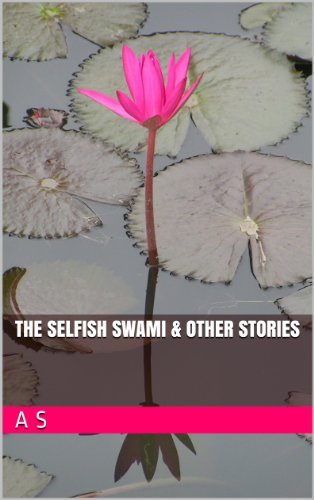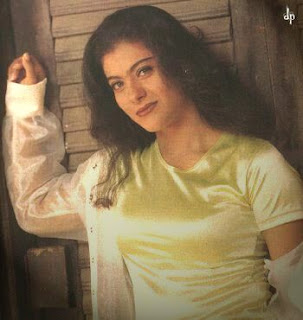Over the years, I have read many articles about Narendra Modi, chief minister of Gujarat state in India. Most of these articles are written by prejudiced reporters with a blatant (read unhidden, undisguised, obvious) motive to show Modi in a bad light. Despite their prejudices and motives, these journalists can't help reporting about the fabulous job Modi is doing in Gujarat and his highly efficient, corruption-free administration. In fact, Modi's governance is so clean and his quotes are so straight-forward, the reporters have to jump through hoops, indulging in mental and verbal gymnastics in their attempts to show Modi in a bad light. The result is that the journalists end up contradicting themselves within the span of a single article, revealing their own prejudices and casting a shadow on their own authenticity. The latest to join this line of journalists is
The Atlantic magazine's correspondent
Robert D Kaplan in his April 2009 edition article about Mr Narendra Modi:
India’s New Face.
The Atlantic article about Mr Narendra Modi is no different from other articles which hold Modi responsible for the 2002 riots in Gujarat: unsubstantiated accusations and insinuations, with absolutely no evidence. To date, I have not read a single article or report which lays out in detail what it was that Mr Modi or his administration was supposed to do and failed to do, during the 2002 riots. Sure, there are overarching statements that Modi should not have let so many people get killed. But there has never been a detailed, chronological list in any article which says, Modi's administration should have done X1 at time-point Y1, and X2 at time-point Y2 and so on. Bear in mind that since India's independence in 1947, there have been numerous other riots - religious and otherwise, there have been countless other killings - by terrorists and criminals, there have been mass deaths of thousands and millions - by droughts, storms and other calamities both natural and man-made, and there has even been an ethnic cleansing - of Kashmiri pandits from their homeland. These things have taken place in every corner of the country. So, it is not as if India's central and state governments have had unblemished track records in preventing or handling these incidents. In fact, the track record of every administration in India has been pathetic when it comes to facing riots, killings and tragedies. Keeping this in mind, why single out Modi's administration alone, nay Mr Modi alone, as the instigator supreme of all communal riots? The irony here is that the initial provocation for the Gujarat riots was the burning of 57 Hindu pilgrims in a train at Godhra.
At the beginning of this post, I mentioned how journalists who set out to bad-mouth Modi end up contradicting themselves within the span of the same article. Mr Kaplan's article in The Atlantic provides some prime examples of this phenomenon, which I shall shortly demonstrate with quotes taken directly from the article. Perhaps, Mr Kaplan thinks that he is providing a fair and balanced perspective. Perhaps, that is what he set out to do. But the contradictions in his article do not appear fair and balanced precisely because he has let so much of his own prejudices and unsubstantiated accusations color the article.
Quote: He [Modi] said he wasn’t interested in talking about politics, just development. Of course, politics represents freedom, and his momentary lack of interest in politics was not accidental. Modi’s entire governing style is antidemocratic, albeit quite effective, emphasizing reliance on a lean, stripped-down bureaucracy of which he has taken complete personal control, even as he has pushed his own political party to the sidelines, almost showing contempt for it.Since when did politics equate to freedom alone? And, not wanting to talk about politics equates to being anti-freedom? Is Modi using the power of the army or the police or anti-social elements to administer effectively? No. All his unrivalled administrative authority comes from the absolute trust and faith his citizens have in him. If this is not the very definition of the democratic zenith, what is? So, how can Mr Kaplan term Modi as "antidemocratic"? Due to the "stripped-down" bureaucracy of Modi's administration? When did a vast, blundering bureaucracy become an essential defining feature of democracy? This is the symptom of prejudiced reporting - term efficient administration based on the citizens' support as being antidemocratic. If Mr Kaplan had been truly neutral, he'd have praised Modi for doing what almost no other political leader in India's modern history has been able to do so far. As for the antidemocratic charge, Mr Kaplan himself goes on to say:
Is Modi a fascist? Although episodes in his political career and his role in the events of February 2002 suggest as much, the answer is, ultimately, no.Quote: “There was no Kalinga effect on Modi,” Hanif Lakdawala, a Muslim who runs a human-rights NGO, told me. He was referring to a war fought in the third century B.C. by the Mauryan Empire under King Ashoka against the kingdom of Kalinga on the eastern coast of India. Ashoka’s forces slew 100,000 civilians. Yet the slaughter left Ashoka with so much guilt that he dedicated his life thereafter to nonviolence and the peaceful development of his empire.In the very next paragraph, there is a contradictory quote:
By all accounts, after the riots, he [Modi] manically dedicated himself to development, sleeping less than four hours every night, up at 5 a.m. to check his e-mail and read the local papers, visiting about 3,000 of the 7,000 villages in the state, and empowering the lowest reaches of its bureaucracy through his slogan, “Less government, more governance.”In other words, after the 2002 riots, Modi did dedicate himself to the "peaceful development of his empire". There has not been a single incident of sectarian violence in Gujarat since the 2002 riots. Elsewhere in the article Kaplan writes, "Gujarat had experienced 10.2 percent annual GDP growth since 2002." This is a classic example of "peaceful development" that any state or country in the world (including the US with all its current economic troubles) would envy.
Quote: Whether it be the wars in Iraq and Afghanistan, the threat posed by Iran, possible chaos in Pakistan, or Islamic terrorism in Kashmir and in India itself, the global situation reminds Hindus—the overwhelming majority of Indian voters—how much they have to fear from Muslim radicalism, and how much Modi signifies a bulwark against it: not through any specific act nowadays, but through the whole aura of his no-nonsense rule.So, Mr Modi provides a 'bulwark' against Muslim radicalism and terrorism by nothing more than a 'no-nonsense rule'. What? No middle-of-the-night arrests? No extraordinary renditions? No illegal tapping of citizens' phones? No torture of prisoners? No prison camps outside the borders? Nobody losing their habeas corpus rights? Mr Modi is able to provide a bulwark against radicalism and terrorism simply with a 'no-nonsense rule'? Shouldn't he receive high praise for that? Note that even Western governments including the ones in Europe and the United States are having to deal with Muslim radicalism and terrorism. If what Mr Kaplan writes about Mr Modi's no-nonsense rule is true, it would appear that the Western governments might benefit from learning from Mr Modi!
Quote: Sophia Khan, a human-rights worker, put it bluntly: “He’s a fascist man. We Muslims don’t exist for him. Our neighborhoods are called mini-Pakistans, while the Hindus live where the malls and multiplexes are.”Another quote: His [Modi's] machine-like efficiency, financial probity, and dynamic leadership of the government bureaucracy have made Gujarat a mecca for development, garnering more internal investment than any other state in India. Migrants, both Hindu and Muslim, from throughout India have been streaming into Gujarat to find work at its expanding factories.So, if Muslims are able to find jobs (and a better life) in Gujarat, how can someone claim that Muslims don't have good living conditions in Gujarat? The truth is that both Hindus and Muslims have bad as well as good living conditions in India. It is not a function of people's religion. And what do they mean by Muslims "don't exist" for Mr Modi? Do they mean that Mr Modi does not give any special considerations to Muslims or pander to them as a vote bank, like many other politicians in India do? He treats everybody equally and that is a good thing!
Quote: What I encountered in interviews with victims of the 2002 violence was not so much radicalization, but alienation from India, evidenced by their withdrawal into their own communities, their reluctance to venture among Hindus.What Mr Kaplan does not seem to realize is that this withdrawal and ghettoization of Muslims does not have anything to do with Mr Modi or the Gujarat riots. This is a phenomenon that is observed in most countries where Muslims exist in substantial numbers, but are not the majority. They form ghettos and don't mingle with the other communities, don't take active participation in national life and discourses. This has been observed in UK, France and other Western countries also. Where is Mr Modi's influence in those countries? Was there a 2002 Gujarat riot in those countries also?
Quote: Modi demonstrates how the century can also go very wrong when charismatic politicians use modern electoral tactics and technology to create and exploit social divisions...Contradictory quote: In fact, Modi has recently gone after the very Hindu nationalists who put him in power, arresting some members of a Hindu-chauvinist group.Modi got members of some Hindu group arrested? That doesn't sound to me like a person who wants to create and exploit social divisions. That sounds to me like a person who treats everyone equally.
Mr Robert Kaplan seems to have some confusing, theories about why there are any communal tensions between Hindus and Muslims in modern India. One of his claims is that the globalization of India's economy and the opening up of the country to outside world is causing Hindus and Muslims to seek greater self-identity, which is in turn leading to communal tensions. Interesting, but WRONG. A full analysis into the Hindu-Muslim tensions in the Indian subcontinent is beyond the scope of this blog post and my meagre grasp of the matter. So, I will end this post with some quotes in Mr Kaplan's article which speak of the good things about Mr Modi and his administration:
-
After taking over the chief ministership in the wake of a disastrous earthquake, in 2001, he has been reelected twice, becoming Gujarat’s longest-serving leader. During his visits to villages, pregnant women regularly touch his feet so that their newborn will be like him. He is so honest that gifts for him are regularly deposited in the state treasury—a far cry from the corruption and nepotism that are so routine in Indian government. Even those Indians who despise Modi’s politics acknowledge his skill and power.-
“I heard you were interested in development here, so here are your answers.” What he gave me was not the usual promotional brochures, but long lists of sourced statistics put together by an aide. Gujarat had experienced 10.2 percent annual GDP growth since 2002. It had eight new universities. In recent years, almost half the new jobs created in India were in Gujarat. The state ranked first in poverty alleviation, first in electricity generation.-
As Atul Tandan, director of the Mudra Institute of Communications, in Ahmedabad, told me, “You have to separate Modi’s political ideology from his management ability. Because there is not a hint of corruption about him, Modi is effective because people believe his decisions are only results-oriented.” Even many Muslims have come to respect Modi for cracking down on the gambling and criminal rackets that have infested some of their communities.-
"I have converted economic development into a mass-movement psychology.” His [Modi's] words echoed through the empty room. “I have a toll-free number where callers hear my recorded voice and can make complaints against the government, and the relevant department must respond within a week.” -
He rolled off his accomplishments: “modern roads, private railroads with double-decker containers, 50,000 kilometers of fiber-optic networks, 2,200 kilometers of gas pipelines, 1,400 kilometers of drinking-water pipelines to 7,000 villages, 24-hour uninterrupted power in rural areas, the first Indian state with private ports, a totally integrated coastal-development plan, two LNG [liquefied natural gas] terminals and two new ones coming on line.”And finally, the money quote:
Vimal Ambani, a prominent, liberal-minded Gujarati businessman, told me, “At the end of the day, Modi still offers the best model for governance in India.” The fact is that Mr Narendra Modi is the best leader in today's India. He has a proven record of economic development and corruption-free, efficient governance, which cannot be matched by any leader in India's democratic history. His self-less service is beyond any kind of doubts or aspersions. Similar rulers from India's ancient history are still celebrated in Indian folklore and history books. I see no reason why Mr Modi should not be given a chance to replicate his success in Gujarat at the national level, as the Prime Minister of India. BJP, Mr Modi's party, should have nominated him as their prime ministerial candidate in the 2009 general elections. They should have realized that Mr Advani is past his political peak (and, I don't mean in age) and he does not have anything revolutionary to offer to the country. Anyway, what's done cannot be changed now. But I hope to see Mr Narendra Modi at the helm of India's national government sooner than later.
Tailpiece: For another article which similarly sets out to show Mr Modi in a bad light, but can't avoid talking about his good points, read the two-part
Rediff Special on The Talented Mr Modi.
Update: I learnt today that Mr Narendra Modi has recently started blogging. You can find his blog here -
http://www.narendramodi.com .
 Thanks to the support and encouragement of all my readers over almost a decade, I have finally published my first book: The Selfish Swami & Other Stories. The book has been published with the pen name: A S. It is a collection of short stories involving the following common and uncommon situations, and more! What happens when:
Thanks to the support and encouragement of all my readers over almost a decade, I have finally published my first book: The Selfish Swami & Other Stories. The book has been published with the pen name: A S. It is a collection of short stories involving the following common and uncommon situations, and more! What happens when:














